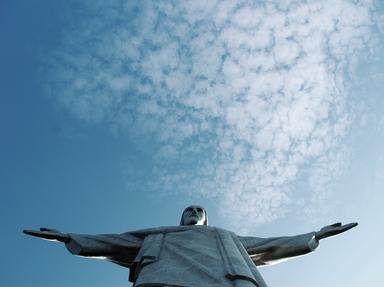Quiz Answer Key and Fun Facts
1. Declared independence after winning the Battle of Maipú in 1818
2. Devastated by the War of the Triple Alliance (1864-1870)
3. Experienced a devastating civil war from 1899 to 1902, known as the Thousand Days' War
4. Won independence from Spain in 1824 under the leadership of José de San Martín and Bolívar
5. Lost access to the Pacific Ocean in 1884 after its defeat in the War of the Pacific
6. Proclaimed independence in 1822 with the "Cry of Ipiranga"
7. Joined Brazil and Argentina in the Triple Alliance War against Paraguay in 1864
8. Emerged as an independent nation in 1831 after the dissolution of Gran Colombia
9. Overthrew its dictator Juan Manuel de Rosas in 1852 ending years of authoritarian rule
10. Secured independence from Spain after the Battle of Carabobo in 1821
Source: Author
wellenbrecher
This quiz was reviewed by FunTrivia editor
trident before going online.
Any errors found in FunTrivia content are routinely corrected through our feedback system.
